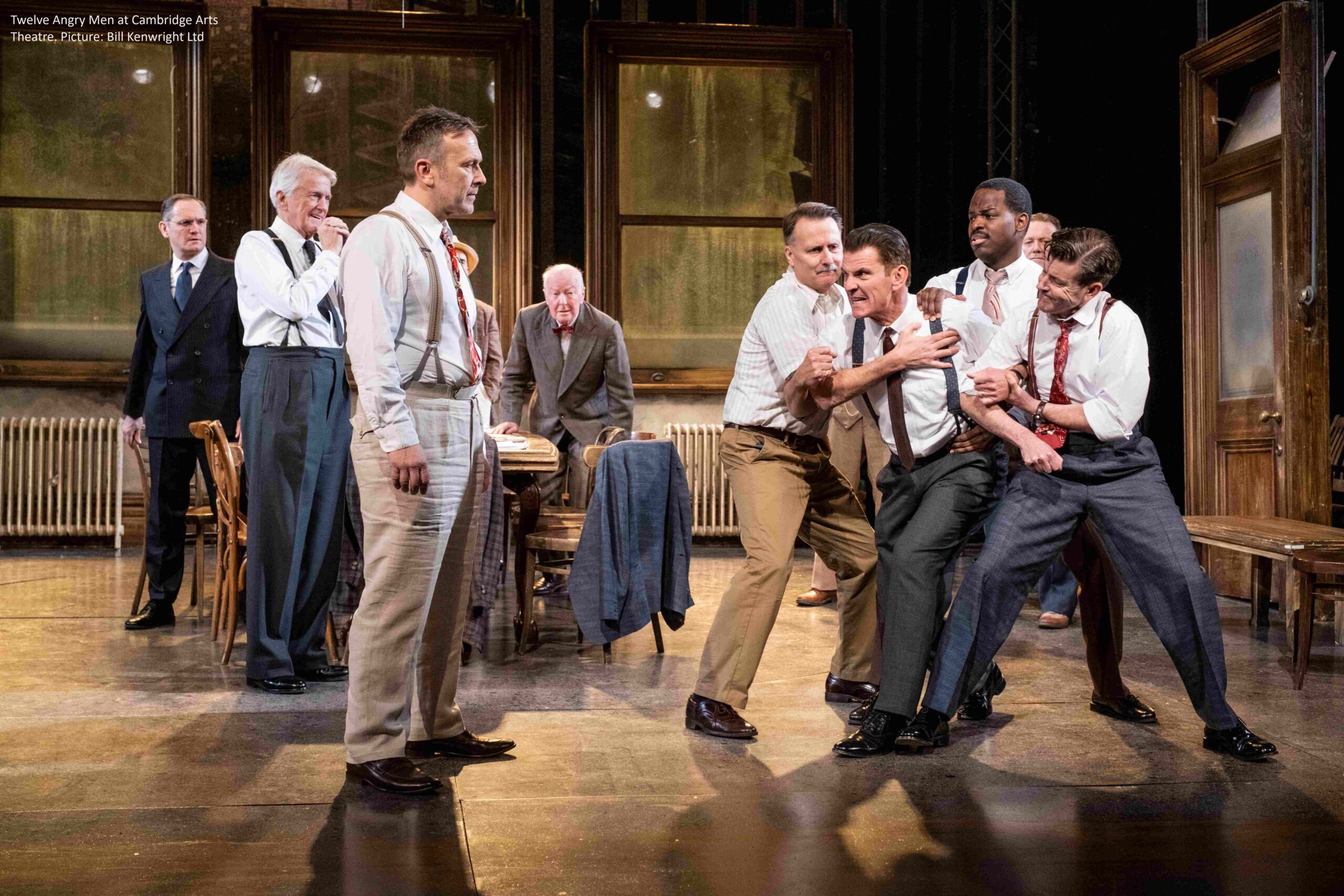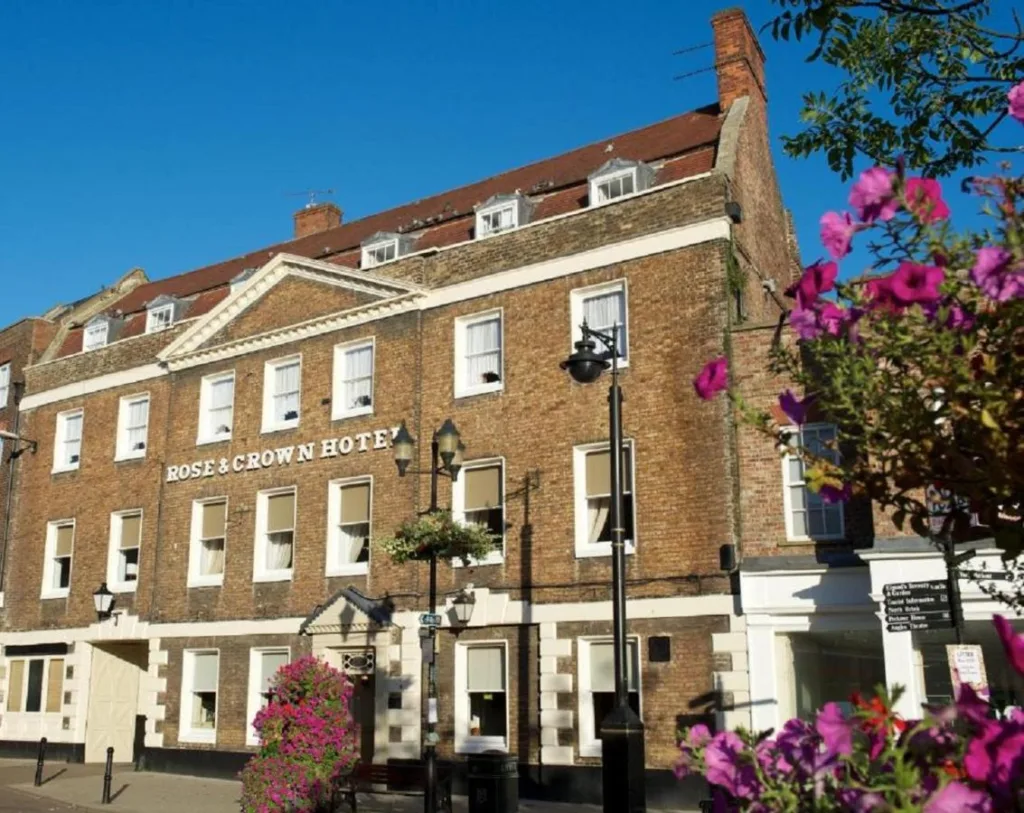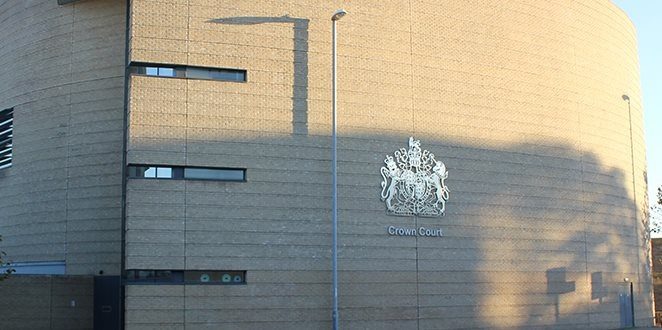There is more humour in this gripping drama than one might expect. A teenager is being tried for murder. He is accused of fatally stabbing his father. The court hears that he owns the murder weapon.
They have two witnesses. Both neighbours. One says she saw the killing. The other says he heard the body fall to the floor and then saw the boy running out of the building.
It’s an open and shut case. So why does one juror start pouring doubt on the evidence?
At the start of the play, in the jury room, 11 jurors out of 12 vote to say the 16-year-old is guilty.
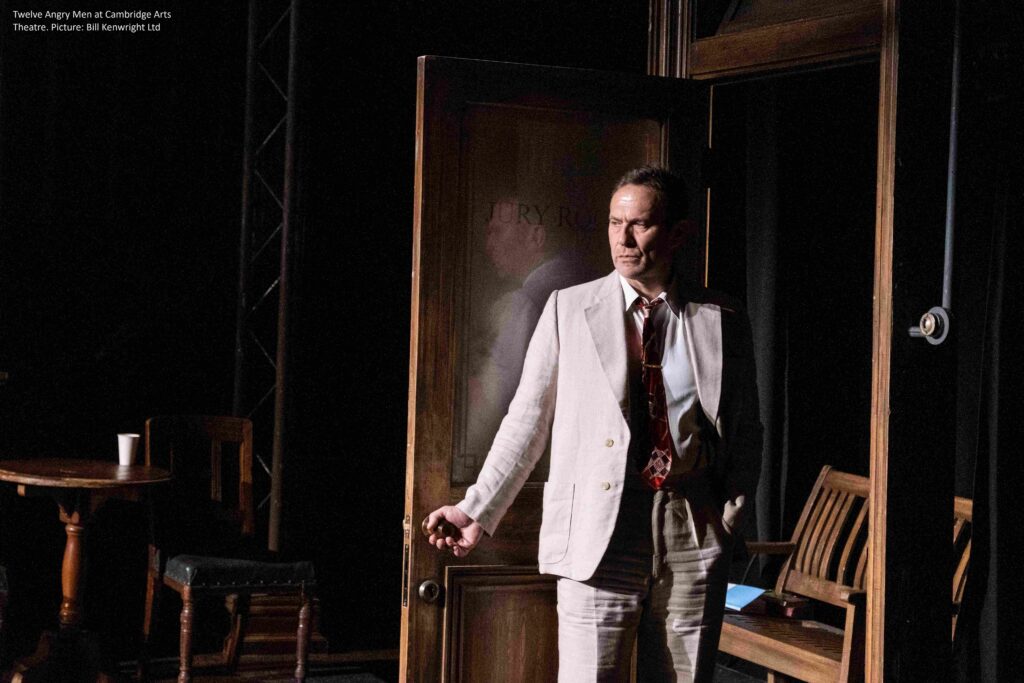
The twelfth man says there is reasonable doubt. He spends this exquisitely constructed piece of theatre dissecting what they have heard in the court room.
It seems like an impossible task but eventually, after arguments, fights, insults threats, pushing and shoving and hot debate, gradually all the others change their minds.
How is he going to do this when the evidence is seemingly conclusive. There is never a dull moment in this piece and all the performances are razor sharp.
There are bravura performances from Jason Merrells (Emmerdale, Waterloo Road, Clocking off and Queer as Folk) as the man who evokes “reasonable doubt” – and his obstinate opposite number played by Tristan Gemmill as the last man standing – a bitter father who says he understands from experience how bad kids are these days. “You can’t do anything with them.”
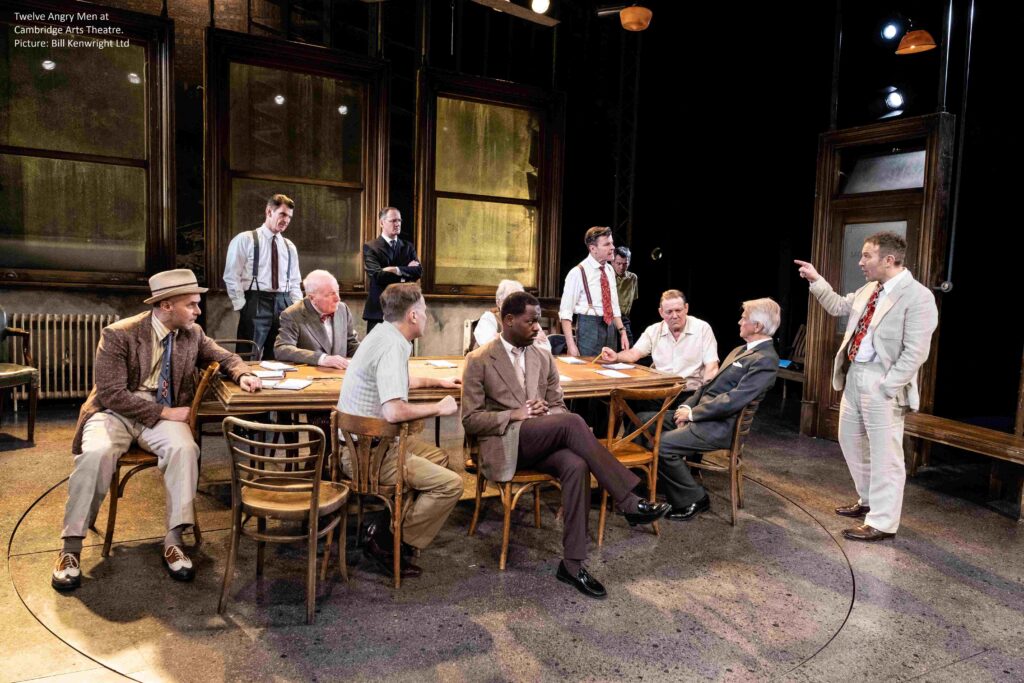
The jurors are known only by their number. Merrells’ Juror 8 picks apart each piece of damning evidence.
The storekeeper who sold the knife to the boy has testified that he has never sold a knife like it – but Juror 8 has gone out and bought one which is identical.
In the time given, stated in court, how much could the woman in the apartment really have seen?
What could the man in the flat underneath really have heard?
Reginald Rose wrote this play in 1954 after he had served on a jury in New York. He was a television writer who was called for jury service.
He said it was a life-changing experience. “I was on a jury for a manslaughter case, and we got into this terrific, furious, eight-hour argument in the jury room.” He realised how much the outcome of the case depended on the assumptions and prejudices of the jurors.
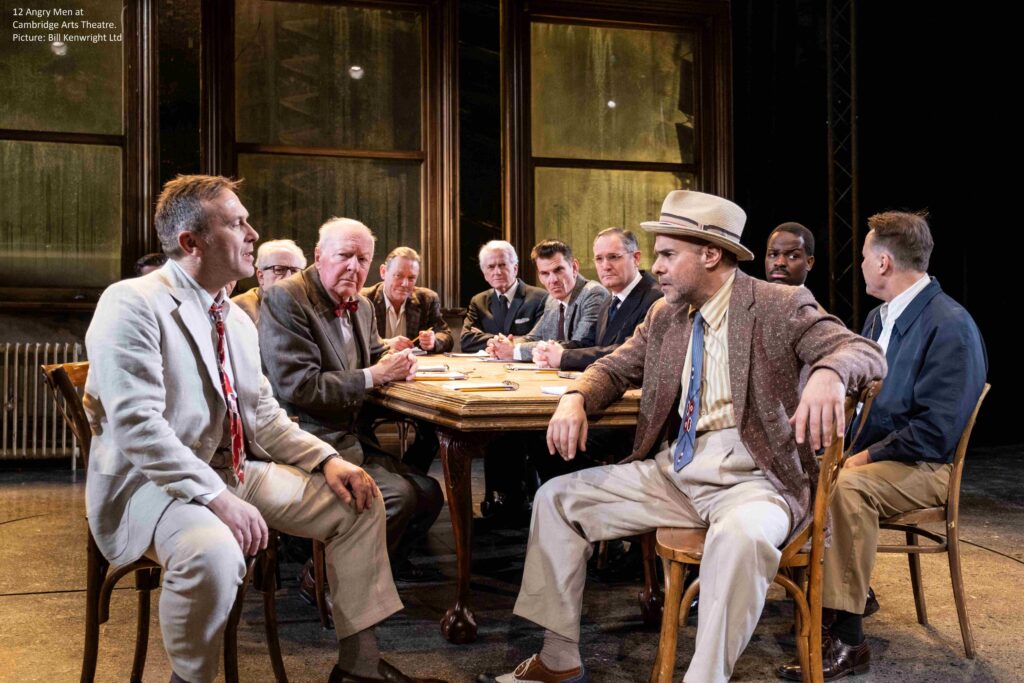
The play Twelve Angry Men began as a television play in 1954. The following year it became a stage play and in 1957 a film starring Henry Fonda and Lee J Cobb, directed by Sydney Lumet.
Rose’s original play, skilfully directed here by Christopher Haydon, feels as pertinent now as ever.
In judging others, which is what a jury does whether it is weighing up the witnesses, or the character of the defendant, or deciding which barrister has the most convincing argument, they have to be influenced by their life experience.
This is a compelling piece of drama, brilliantly written and adroitly performed. Edge of seat stuff.
Twelve Angry Men is at Cambridge Arts Theatre until Saturday, April 27.


